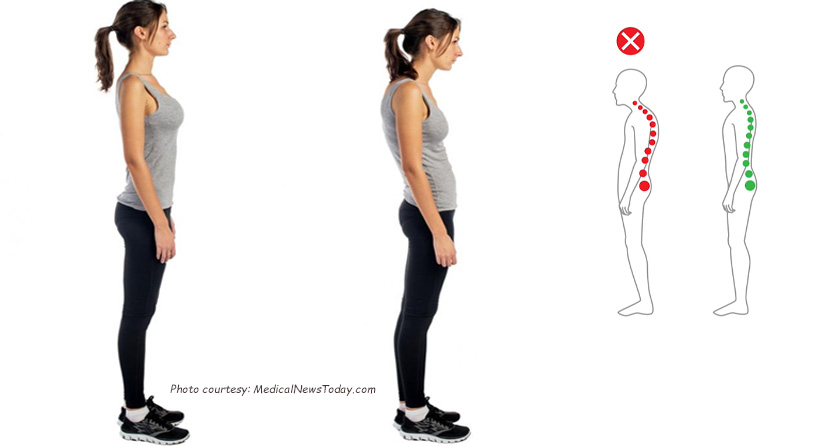Malabsorption: Here's how to tell if you're at risk
November 26, 2021, updated August 19, 2022
Before you run out and spend hundreds of dollars on useless, unregulated and expensive “gut healing” supplement protocols for self-diagnosed malabsorption, read on to learn about the REAL signs of nutrient malabsorption that warrant investigation by a legit medical doctor
I work in a large gastroenterology practice, where a common nutrition concern among my patients is whether they’re not absorbing nutrients properly – called nutrient malabsorption. To be sure, this is a reasonable concern given the types of patients I work with.
Impaired nutrient absorption is quite common among people with inflammatory bowel diseases like Crohn’s disease or other conditions like celiac disease and pancreatic insufficiency. People who take certain medications to manage gastrointestinal conditions – including the widely prescribed acid suppressing meds called proton pump inhibitors – may also have trouble absorbing certain vitamins (B12) and minerals (calcium).
But despite all the very real reasons that someone with chronic digestive issues may have trouble absorbing nutrients from their food, most of my patients who worry about this issue are really not at risk. If you spend any amount of time on social media following self-appointed wellness gurus, naturopaths or functional medicine practitioners, there’s a good chance you’ll become convinced that your gut is “leaking” out all manner of nutrients on the basis of infographics that cite pretty common symptoms like fatigue, headaches, constipation or bloating as evidence of malabsorption. Generally, they’re not.
Before you run out and spend hundreds of dollars on useless, unregulated and expensive “gut healing” supplement protocols for self-diagnosed malabsorption, read on to learn about the REAL signs of nutrient malabsorption that warrant investigation by a legit medical doctor.
5 Signs of Nutrient Malabsorption
- Unintentional weight loss
- Iron deficiency anemia
- Early onset osteopenia or osteoporosis
- Oily, orangey, sticky or hard-to-flush diarrhea
- Low vitamin B12 levels
Unintentional Weight Loss
As anyone who has tried and struggled to lose weight can attest, our metabolism fights pretty hard to maintain our weight in a pretty steady range, whether we’re happy with that weight or not. So if you start losing more than just a few pounds without even trying to – especially if it’s not associated with any significant changes in your diet or activity level – you should get that checked out by an internist or gastroenterologist sooner rather than later.
Unintended weight loss often accompanies inflammatory bowel diseases or celiac disease, in which damaged intestinal cells are unable to absorb calorie-containing macronutrients like carbohydrates, protein or fat. Low levels of pancreatic enzymes, called pancreatic insufficiency, can also cause macronutrient malabsorption.
These conditions are typically – but not always – accompanied by some unpleasant gastrointestinal symptoms. Contrary to online disinformation, unintentional weight gain is not a sign of nutrient malabsorption.
Iron Deficiency Anemia
Anemia is a condition in which you have too few red blood cells or not enough hemoglobin – a protein in the red blood cells that transports oxygen to cells throughout the body. Deficiencies of certain vitamins and minerals can cause anemia, including iron, copper, Vitamin B12 and/or folate, though iron deficiency anemia is the most common.
To be sure, there are many reasons why someone may become iron deficient, and not all of them are malabsorptive in nature. Not consuming enough iron-rich foods is an obvious one, and this is especially common among children who are “picky eaters” or anyone who follows a plant-based diet, as these tend to be lower in iron (in general) and skewed toward less-absorbable forms of iron (in particular).
People with a uterus who menstruate are also prone to iron deficiency, as the monthly loss of blood can be hard to replace with dietary iron, especially if your periods are heavier and/or you have fibroids. But if none of these risk factors apply to you and you’re diagnosed with iron deficiency or iron deficiency anemia, it’s worth seeing a gastroenterologist.
They’ll want to make sure you don’t have a bleed somewhere in your gastrointestinal tract, and they’ll also check you out for Crohn’s disease and celiac disease – two common causes of iron malabsorption due to inflammation and intestinal cell damage.
Symptoms of anemia include:
- Crushing fatigue
- Shortness of breath (especially on exertion, like when climbing stairs)
- Dizziness
- Low blood pressure
- Racing heartbeat
- Pale skin
- Feeling cold all the time
Early Onset Osteopenia or Osteoporosis
If you’re a relatively young person who suddenly experiences stress fractures for no apparent reason, your doctor may send you to have a bone density scan. If the results show that you have osteopenia or osteoporosis – abnormally low bone mineral density – it may be wise to consult a gastroenterologist.
Being inexplicably diagnosed with low bone density in your 20s, 30s or 40s merits further investigation to rule out a malabsorptive cause, including and especially celiac disease or Crohn’s disease, for the same reasons described above in the anemia section. Bone mineral density loss can certainly affect younger people for other reasons – including and especially if you have a history of a restrictive eating disorder like anorexia and/or a body weight for height that falls below a body mass index (BMI) of 18.5.
Oily, Orangey, Sticky or Hard-to-flush Diarrhea
My patients with chronic diarrhea, especially those with irritable bowel syndrome, are often worried that their diarrhea signifies poor nutrient absorption.
“Food goes right through me,” they often complain, and they understandably fear that this means they are not benefiting from its nutrients. But believe it or not, most diarrhea is not the result of nutrient malabsorption, and this is especially so for IBS.
When you run to the bathroom soon after eating a meal, you’re not actually pooping out the food you just consumed. Rather, your digestive tract nerve reflexes are overreacting to the stimulus of the meal you just ate and start rushing along the current contents of your colon toward the exit door. The type of diarrhea that should raise some red flags, however, is a particularly unpleasant one called steatorrhea, which results from fat malabsorption.
Fatty stools may appear lighter colored, streak the toilet and be hard to flush, leave behind any oily sheen on the toilet water, and/or smell particularly foul. Common causes of steatorrhea include pancreatic enzyme deficiency, celiac disease and small intestinal bacterial overgrowth, or SIBO.
Low Vitamin B12 Levels
Unless you follow a vegan diet or pretty strict vegetarian diet, a finding of vitamin B12 deficiency should trigger an inquiry.
Unexplained vitamin B12 deficiency should prompt a conversation with your doctor to rule out malabsorptive causes, though in my experience, many people are just given B12 supplements or shots and sent on their merry way. To be absorbed later on in the intestines, vitamin B12 requires your stomach to have ample amounts of acidity and certain co-factors produced by cells lining the stomach in adequate supply.
B12 is actually absorbed in the tail-end of the small intestine in a neighborhood called the terminal ileum. Insufficient production of the co-factor (called intrinsic factor) or stomach acid can cause vitamin B12 malabsorption, as can inflammation in the terminal ileum caused by Crohn’s disease or using too many nonsteroidal anti-inflammatory drugs, like aspirin, ibuprofen or naproxen.
Conditions like SIBO or having a tapeworm can also cause B12 deficiency, though not through malabsorption; rather, the uninvited gut guests gobble up your dietary B12 for their own metabolic purposes.
For more information please also review:
Malabsorption (Syndrome): Symptoms, Causes & Treatment, https://my.clevelandclinic.org/health/diseases/22722-malabsorption
What is Malabsorption Syndrome? https://www.webmd.com/digestive-disorders/malabsorption-syndrome










